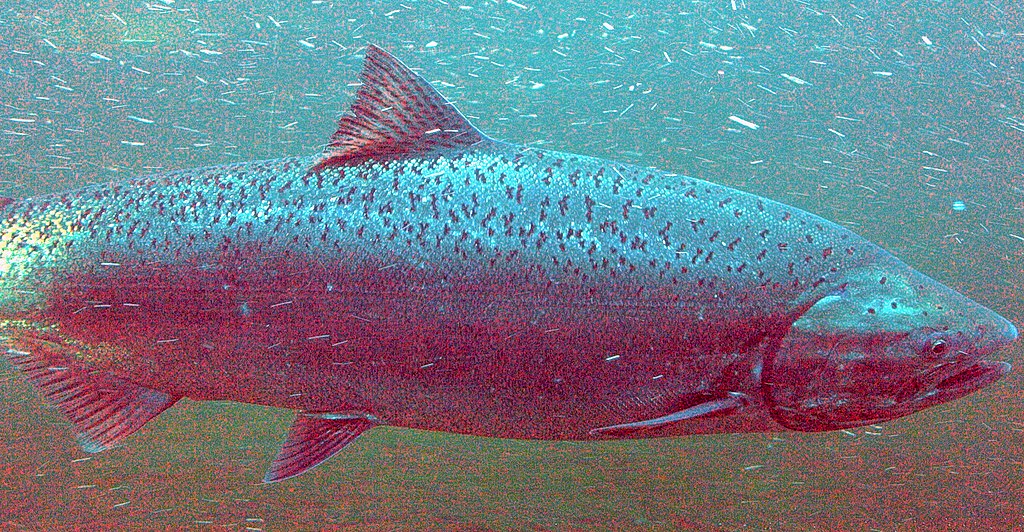The champagne glasses were hardly dry. It had seemed a historic judicial victory for orcas and threatened chinook salmon. In fact, it was an historic victory. But now we know it won’t benefit the salmon or orcas any time soon.
A three-judge panel of the 9th Circuit has stayed U.S. District Judge Richard Jones’ May order that would have shut down the Southeast Alaska troll fishery for chinook salmon. Most of the chinook caught by trollers off southeast Alaska come from Washington, Oregon, and British Columbia. The U.S. government has listed four of the chinook populations as threatened. All of the chinook could otherwise be food for the Southern Resident Killer Whales, which the U.S. government has listed as endangered.
In 2019, the National Marine Fisheries Service (NMFS) issued a Biological Opinion (BiOp) that conceded the fishery would harm salmon and orcas but argued that investments in hatcheries could mitigate the damage. The federal agency okayed the troll fishery’s “incidental take” of listed salmon and orcas. Duvall-based Wild Fish Conservancy (WFC) sued, claiming that the BiOp violated the Endangered Species Act, the National Environmental Policy Act, and the Administrative Procedure Act.
Last August, Judge Richard Jones agreed. This May, he went further, ordering the government to vacate the portion of the BiOp that approved the “incidental take” for the summer and winter fisheries. The commercial fishery thereby lost its legal cover. The feds, plus the state of Alaska and the Alaska Trollers’ Association, which had joined the suit, appealed. That appeal process will take a while; briefs will be filed later this year. Based on Jones’ ruling, the fishery, scheduled to open at the start of July 1, wouldn’t have happened. So the state, joined by the trollers and the feds, asked for a stay, which has just been granted.
(A comprehensive look at the chinook trolling industry appeared in the Saturday Seattle Times –Ed.)
That stay produced a rebuttal from the fish-and-orca protectors. “It is unfortunate that the Ninth Circuit determined the short-term economic interests of Southeast Alaska commercial harvesters should be prioritized over the long-term interests of all current and future generations of First Nations, Tribal Nations, and communities throughout the Pacific Northwest who depend on these iconic species,” said WFC executive director Emma Helverson in a press release. “We are incredibly disheartened by this decision to continue the fishery while California, Oregon, Washington, and British Columbia are enacting closures or severe constraints on many of the same populations due to continuing Chinook declines. We strongly advocate for consumers to avoid purchasing Chinook caught in Southeast Alaska.”
Why did the three judges do it?
They laid out standard criteria for granting a stay, including “whether the stay applicant has made a strong showing that he is likely to succeed on the merits; (2) whether the applicant will be irreparably injured absent a stay; (3) whether issuance of the stay will substantially injure the other parties interested in the proceeding; and (4) where the public interest lies.”
The BiOp’s flaws didn’t matter. The judges observed that “a flawed agency rule does not need to be vacated.”
Bottom line: “the moving parties have established a sufficient likelihood of demonstrating on appeal that the certain and substantial impacts of the district court’s vacatur on the Alaskan salmon fishing industry outweigh the speculative environmental threats posed by remanding without vacatur.” (Vacutur is a legal term for “A rule or order that sets aside a judgment or annuls a proceeding.”)
Helverson bridled at the court’s characterization of the environmental effects as “speculative.” Indeed, the BiOp itself hadn’t found the basic effects speculative at all. The agency had just argued they could be mitigated. WFC argued that the benefits of mitigation were speculative. And – based on a 40-page report and recommendations by U.S. magistrate judge Michelle Peterson — the district court agreed.
Of course, one can say that the effects of one more fishing season would be speculative; who knows if this season will be the final straw? But there’s no logical uncertainty about the fact that a “mixed stock” fishery for chinook salmon that includes threatened populations will deplete those populations. Or that any chinook fishery within the range of the Southern Resident Killer Whales will deplete the whales’ food supply. (Yeah, I like eating chinook salmon, too, but the logic is what it is.)
If WFC wins on appeal, the stay goes away. But until the case is finally resolved, we can ponder the irony of letting people continue to kill threatened and endangered species in order to prevent irreparable injury.
Discover more from Post Alley
Subscribe to get the latest posts sent to your email.

Wfc out of touch, money hungry dolts